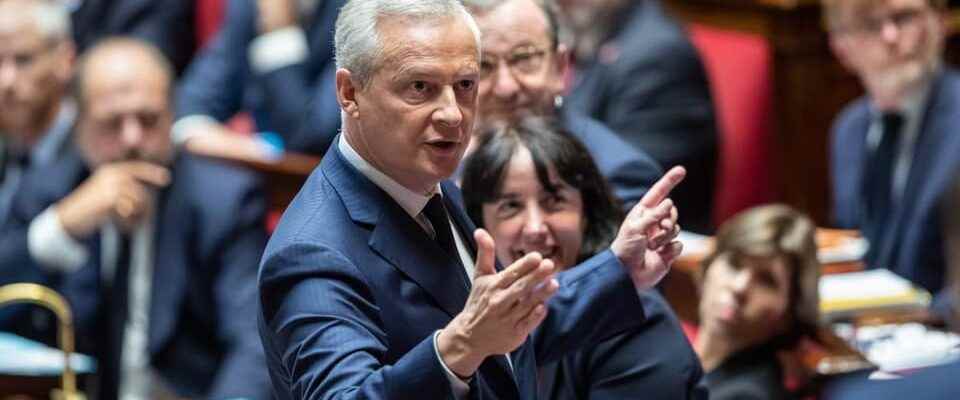contents
France’s government is currently suffering many defeats. A constitutional article from 1958 could remedy the situation.
In France, the National Assembly has been discussing the budget for the coming year for a week. The government collects one defeat after the other.
It is clear that the government will pull the emergency brake before the final vote and get the budget past Parliament on its own authority. This has already been decided in principle. Nevertheless, she is still waiting.
Trial of strength between opposition and government
The budget becomes the first major showdown between the opposition and the government in parliament. This has long been clear. Because when it comes to the budget, opposition parties generally vote against the government and rewrite the estimate together.
Legend:
French Finance Minister Bruno Le Maire speaks during weekly Question Time at the National Assembly. (October 11, 2022)
Keystone/EPO/CHRISTOPHE PETIT TESSON
The opposition also does this against their own convictions: This week, for example, parliament removed the rule that the deficit in the next year could not exceed five percent of national value added. Even the right-wing Républicains supported this. And this despite the fact that they usually demand more budget discipline.
Articles of the Constitution from the 1950s
Because the budget is the financial basis for government work, it is also clear that at some point the government will break off deliberations in parliament and approve the budget itself. Article 49, paragraph 3 of France’s 1958 constitution expressly provides that the government can approve important legislative projects itself – bypassing parliament.
All French presidents have applied this constitutional article at least once. Either because their majority in parliament was too weak or because part of their own base rebelled. With the article, presidents also ended seemingly endless debates.
A question of tactics
The fact that the government is still hesitating to approve the budget on its own is also a question of tactics: when Article 49-3 of the Constitution comes into play, this always triggers political outrage.
The government wants to avoid this if possible. Because the left-wing opposition has called for a protest march on Sunday. And the unions are planning a nationwide strike day on Tuesday. A political show of strength against Parliament could give both demonstrations an additional boost.
Public support is uncertain
The strikes in the refineries and fuel depots, which are currently leading to a fuel shortage, are also highly explosive. The government wants to break the strikes with coercive measures. According to opinion polls, she even has a majority of the population behind her.
But public opinion is fickle: If, for example, at the beginning of the holiday week there is not enough fuel available to drive to the seaside with a full tank, then dissatisfaction may increase. This could turn into angry criticism of the crisis management – and the government wants to avoid that at the moment.
